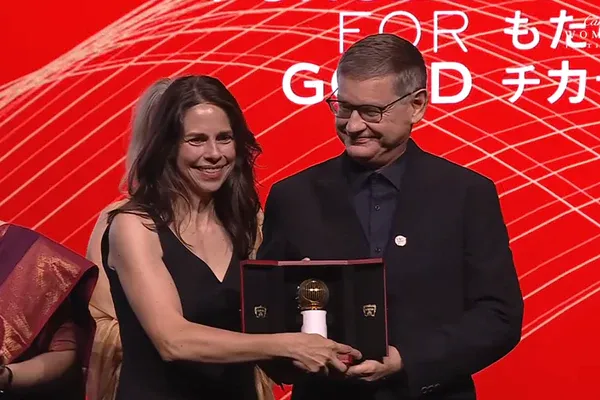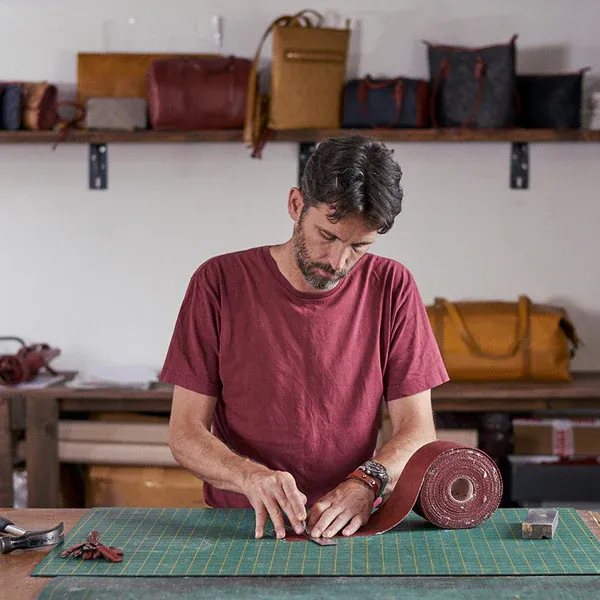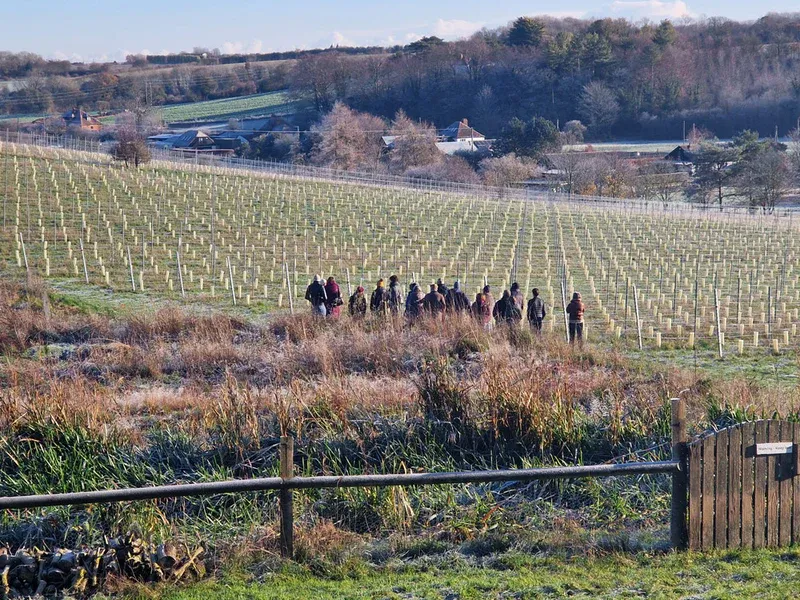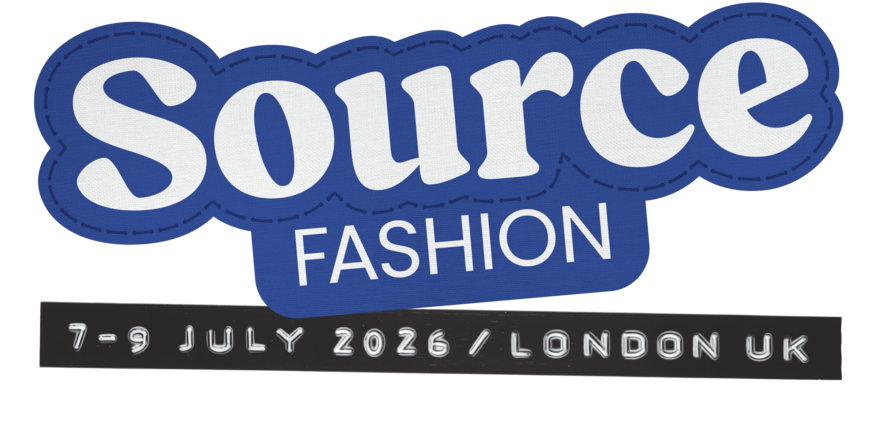Interview with Kresse Wesling, CBE
)
Ahead of Source Fashion (13th - 15th Jan 2026), we sit down with Kresse Wesling, CBE on building her company, Elvis & Kresse - entirely focused on creating products from reclaimed materials. A true example of circularity at scale, Kresse explains the origin story and how we could make this more commonplace in the fashion world.
Hi Kresse, can you please introduce yourself, and your organisation?
Yes, I am just a Canadian kid that has had a lot of luck, lucky to have a great family, a fantastic education and friends, and to have met Elvis and had the chance to build a life and business with him. Elvis & Kresse was established in 2005 to save London's decommissioned fire-hoses; hoses that had become too damaged to repair and were going to landfill. We fell in love with these brave old hoses and mounted a rescue.
Today, our highly skilled craftspeople make beautifully designed accessories (bags, belts and wallets) and homeware from 15 different reclaimed materials. We now have several charitable partnerships and collaborations across industries. 50% of profits from the fire hose range go to The Fire Fighters Charity. 50% of the profits from our rescued leather pieces are donated to Barefoot College International.
In 2021 we also took on a farm in order to build a sustainable HQ (made of straw bales), establish a regenerative agriculture project, generate our own renewables and implement a host of environmental initiatives.

A real example of circularity in action! I know that many brands now talk about the circular economy, but how do you distinguish between genuine circularity and “greenwashing” when it comes to creating and curating ethical products?
True circularity means that everything is recycled, reused or composted in perpetuity and that processes are powered by renewable energy. If there is no pathway to that, no ‘steps in place’, then this is a greenwash situation. If a brand isn’t keen on transparency or collaboration? Those are also red flags… No single business can build a circular economy on its own.
As you mentioned, Elvis & Kresse famously transforms decommissioned fire hoses into luxury products. What’s been the trickiest part of working with unconventional materials and how did you overcome it?
It is very hard to have no example to follow. We have had to pioneer all our own techniques and processes. We have invented and built bespoke equipment. Innovation like this is always difficult, and the outcomes were never what we predicted. But what was even harder was building the market. Sustainable fashion was in its infancy when we started. Learning to communicate our message in a way that it would resonate, reaching and building an audience, and gaining their trust? That was the real mountain to climb, and to a certain extent we are still climbing it.
It's quite the journey. You’ve built a business around turning the discarded into something desirable - what’s the strangest or most unexpected item you’ve ever wanted to (or been able to!) rescue and reimagine?
Anyone that has ever been to the farm will have been to see our waste water treatment system. We transform our ‘humanure’ into vermicast (with the help of a lot of worms) and we treat all our own waste water in a wetland system that is at the heart of the farm. It is pretty magical, our very own Eden, and all fed by waste.
You’ve proven that luxury can be built on rescue, repair, and reuse. Do you think mainstream luxury fashion is truly ready to embrace this, or is it still resisting?
It is definitely still resisting. There is change, but it is far too slow.

Something we cover at the show often is the fact that sourcing and buying teams are under pressure to deliver both sustainability and cost-efficiency. In your view, is it possible to achieve both - or does one always come at the expense of the other?
It is - but let's talk about what cost efficiency means. Right now the planet pays, and people pay. In a lot of cases low prices are subsidised by future generations and the only life support system we have. Being efficient often means using less, less materials, less energy, and when you do that, you save money. There is a limit though, to how low you can go. If you get into exploitation territory and degradation, then no matter what the price might be, the costs are just too high.
Which material innovations excite you most right now?
Anything that is entirely circular and biodegradable and regenerative - and amazingly there are new materials that are coming through which genuinely work like this. On the farm we are growing weavable willow - it is grown on our wetland (it is fed by the nutrients in our waste water and plays a role in cleaning the water), it can be cropped annually, and it is ultimately biodegradable!
Traceability is a buzzword across the industry - it seems this is something that excel in at Elvis & Kresse. What does real supply chain transparency look like to you, and how can brands get there faster?
First and foremost a brand must be totally open and willing to share the true details of their materials sourcing, their production processes, their team and everything else that they do as a company. Being transparent is a process, it isn’t something you do once, and move on from; it is a commitment, something that you practice with consistency and honesty. How do you find out if a company is open? Just ask! If they don’t know or can’t answer one of the following questions, then they might not be transparent, and not worth your investment.
-
Where do your raw materials come from?
-
Where do you manufacture?
-
Who made this item?
-
Are they paid a living wage?
-
Can I visit any of the sites?
-
Do you have any third party verification?
Brands can do this really, really quickly. It is simply a decision that you then follow through on every day from there on in. Our approach has always been to be completely open - What do you want to know? Anything you want to ask, ask away…Give us a call. Come and see us. We have a lot more to share and nothing to hide.

Collaboration in fashion can often feel competitive. What’s the secret to making partnerships in sustainability truly effective?
I think it is the opposite of a secret! If you are completely transparent with each other, it is much easier to collaborate. You have to understand each others’ objectives, and you have to align your interests. The more work you do up front to make sure that everyone is clear, particularly around investing time and money, the easier the process will be.
Elvis & Kresse has always had philanthropy and values at its core. What advice would you give sustainability professionals inside big corporations who don’t have that same freedom to embed purpose?
Freedom can be bestowed, but also fought for. I genuinely think that we are at, and have been at for the last 20 years, a turning point in history. If your organisation does not want to evolve, transform, and become truly regenerative then perhaps it is time to invest your talent somewhere else!
What’s the most frustrating misconception you hear about sustainability?
That climate change is something you can ‘believe in’ or not… It isn’t a religion, it is science.
And finally, when you look back at your career, what’s the boldest or most unconventional decision you made that really changed your trajectory?
Elvis & Kresse does three things: we rescue materials, we transform them, and then we donate 50% of the profits to charity. I think the donation is possibly the most radical, so many people have questioned this. They have asked why. But our answer has always been ‘why not?’ Why not share, why not see if more good could be done with the surplus of an already good business? This single decision made us a social enterprise. It meant we immediately belonged to an incredible family of businesses that exist to solve social and environmental problems. It also means that we can ask other businesses that they do the same. We think in a truly circular economy that capital must also be circular, and we need to model that.
Want to hear more from Kresse? She'll be at Source Fashion on Jan 13th - 15th, get your ticket here!

